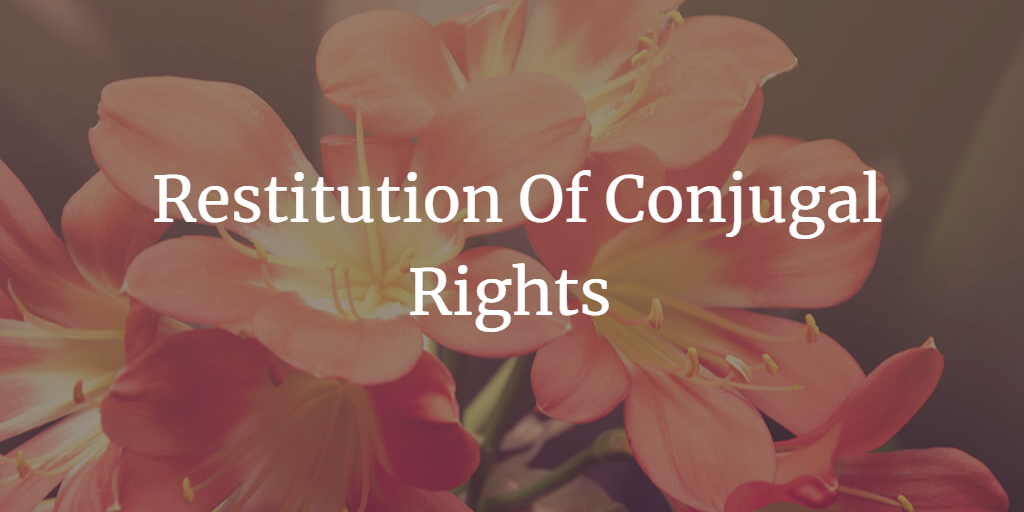Constitutional Validity Of Restitution Of Conjugal Rights

Table of Contents
Historical Background
Legal Provisions
Arguments Challenging the Constitutional Validity
Counterarguments Supporting RCR
Conclusion
1. Historical Background
The concept of Restitution of Conjugal Rights (RCR) has its roots in English common law. It was introduced in India during the British colonial era and has been incorporated into various personal laws, governing the legal rights and obligations of spouses within a marriage.
2. Legal Provisions
The Restitution of Conjugal Rights is provided for under different personal laws in India:
Hindu Marriage Act, 1955 (Section 9)
Special Marriage Act, 1954 (Section 22)
Indian Divorce Act, 1869 (Section 32)
RCR allows a spouse to seek a court decree ordering the other spouse to resume cohabitation and marital duties. The primary objective of RCR is to encourage reconciliation and preserve the sanctity of marriage.
3. Arguments Challenging the Constitutional Validity
Critics of RCR argue that it is unconstitutional on various grounds:
Violation of Right to Equality (Article 14): Opponents argue that RCR provisions disproportionately impact women, as they are more likely to be subjected to the decree, thus violating the right to equality.
Infringement of Right to Privacy (Article 21): Critics contend that RCR provisions intrude upon an individual's right to privacy, as they interfere with personal choices and intimate aspects of marital life.
Contrary to Dignity and Autonomy: It is argued that compelling a spouse to cohabit with their partner against their will undermines their dignity and autonomy, which are essential aspects of the right to life and personal liberty under Article 21.
4. Counterarguments Supporting RCR
Proponents of RCR offer several counterarguments to defend its constitutional validity:
Preservation of Marriage: Supporters argue that RCR provisions aim to preserve the institution of marriage and promote reconciliation, which is a legitimate state interest.
Not Gender-Biased: Proponents claim that RCR provisions apply equally to both spouses, and therefore, do not violate the right to equality.
Judicial Discretion: It is argued that courts exercise discretion while granting RCR decrees, taking into account the specific circumstances and best interests of the parties involved.
5. Conclusion
The constitutional validity of the Restitution of Conjugal Rights in Indian law remains a contentious issue. While critics argue that it infringes upon fundamental rights such as the right to equality and the right to privacy, proponents contend that it serves a legitimate purpose of preserving the institution of marriage and promoting reconciliation. As of now, RCR provisions continue to be part of Indian family law, and courts exercise discretion in granting such decrees based on the circumstances of each case. It remains to be seen whether future legal developments will lead to a re-examination of RCR's constitutional validity and its role in Indian family law.


